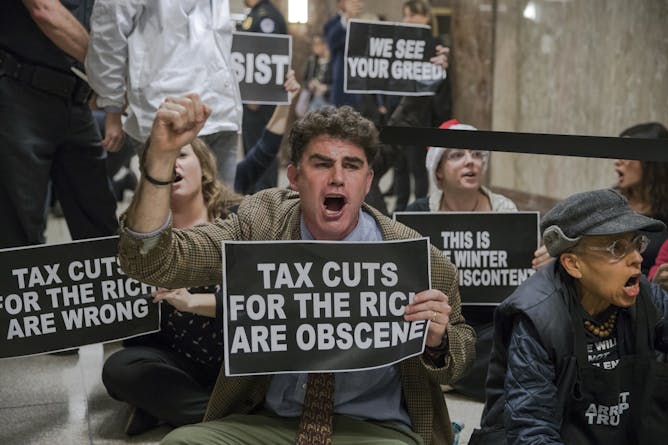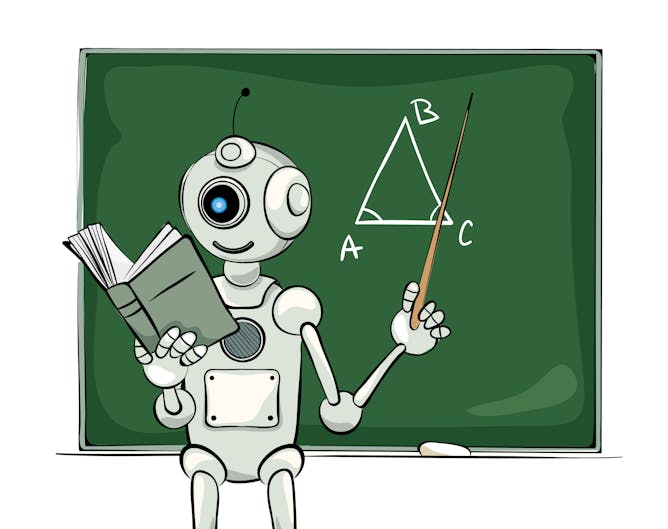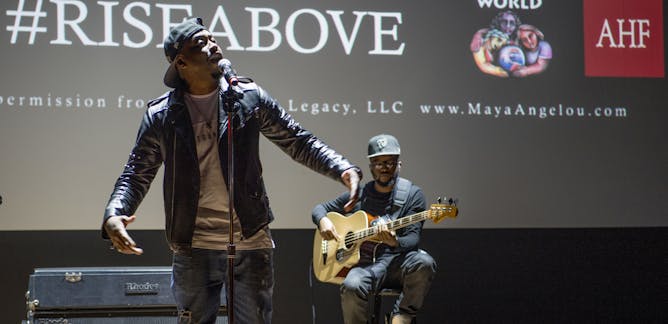| |
|
|
|
|
|
|
| |
|
Editor's note
|
|
Congressional Republicans passed sweeping tax legislation overnight. Some waking up to the news may find the Senators’ actions confusing. Won’t angry voters punish them in 2018 for passing such an historically unpopular bill? For several reasons, the answer to that question is “no,” according to David Barber, Director of the Center for Congressional and Presidential Studies, American University. The GOP doesn’t care if you don’t like their bill.
Since the announcement of Prince Harry and Meghan Markle’s engagement, many have framed the forthcoming wedding as a fairy tale: A dashing prince plucks a mixed-race woman from the streets of Los Angeles and transforms her into a princess. But USC Annenberg sociology professor Ben Carrington thinks we’re missing the real story: How Meghan Markle will improve the public standing of a monarchy married to stuffy traditions and outdated views of country, family and race.
A major barrier to broad-based artificial intelligence may be one step closer to falling, thanks to research conducted by Michigan State computer scientist and integrative biologist Arend Hintze. He develops algorithms that can evolve, and describes his latest effort, in which machines learn on their own – just like people do.
|
Emily Costello
Deputy Editor/Politics + Society Editor
|

|
|
Top stories
|

Protesters shout their disapproval of the Republican tax bill on Nov. 28, 2017.
AP Photo/J. Scott Applewhite
David C. Barker, American University
If Republicans don’t cut taxes on the wealthy when they have control of both houses of Congress and the presidency, what do they live for?
|

Britain’s Prince Harry poses with Meghan Markle in the Sunken Garden of Kensington Palace on Nov. 27, 2017.
Toby Melville/Reuters
Ben Carrington, University of Southern California, Annenberg School for Communication and Journalism
Much of the Harry and Meghan coverage has ignored the royal family's complicated history with race and "blood" and its insistence on continuing outdated traditions.
|

How can computers learn to teach themselves new skills?
baza178/Shutterstock.com
Arend Hintze, Michigan State University
For future machines to be as smart as we are, they'll need to be able to learn like we do.
|
Senate tax plan
|

Benjamin J. Cohen, University of California, Santa Barbara
Universities play a vital role in promoting economic growth, something the writers of the Republican tax plan have apparently forgotten.
| |

Stephanie Leiser, University of Michigan
Far from dispelling the notion among Americans that the system is 'rigged' against them, Republican tax plans are more likely to make matters worse.
|

Diane Dewar, University at Albany, State University of New York
If Americans become less healthy and have less access to health care, then everyone loses.
| |
|
|
Economy + Business
|

Ashley Whillans, Harvard Business School; Frances Chen, University of British Columbia
Social media is making it easier than ever to measure your perceived popularity against your peers in ways that damage are well-being.
| |

Gleb Tsipursky, The Ohio State University
Dealing with a co-worker or manager who says demonstrably false things can be a challenge, particularly at holiday office parties. Here's a guide to handle a colleague in denial.
|
|
|
Science + Technology
|

Artemis Spyrou, Michigan State University; Wolfgang Mittig, Michigan State University
By figuring out fission, physicists were able to split uranium atoms and release massive amounts of energy. This Manhattan Project work paved the way both for atomic bombs and nuclear power reactors.
| |

Jack Barkenbus, Vanderbilt University
Why do tech companies care so much about self-driving cars? If drivers no longer need to pay attention to the road, they can use their mobile devices even more.
|

Tracy K.P. Gregg, University at Buffalo, The State University of New York
How do scientists predict volcanic eruptions? To do so with accuracy, they need to know the individual volcano and its history very well.
| |

H.V. Jagadish, University of Michigan
Should police be able to use cellphone records to track suspects – and law-abiding citizens?
|
|
|
Ethics + Religion
|

David Mislin, Temple University
Americans have idealized religious freedom and imagined that it brings harmony. But, history suggests it might, in fact, have led to more conflict.
| |

Zackery M. Heern, Idaho State University
The Baha'i faith originated in Iran and today has 100,000 communities across the globe, including the United States. Here is their history.
|

David King, Indiana University-Purdue University Indianapolis
As Americans make decisions about year-end giving, how much of it will be influenced by their faith?
| |

Ted Lechterman, Stanford University McCoy Family Center for Ethics in Society
Before you reach for that checkbook or give to a charity online, pause to think about what makes a cause good in the first place.
|
|
|
Arts + Culture
|

Sid Bedingfield, University of Minnesota
In the 1960s, white newspaper journalists exploited racial divisions to help build the GOP's southern firewall.
| |

Amanda Lotz, University of Michigan
Disney recently announced a forthcoming streaming service, leading some to wonder if the company is gearing up for a battle with Netflix. But not all streaming services are locked in a death match.
|
|
|
Health + Medicine
|

Allison Webel, Case Western Reserve University
HIV has no boundaries. Men and women in almost every country are affected. Yet strides have been made, so much so that many are able to think of living with AIDS rather than dying from it.
| |

Shervin Assari, University of Michigan
Attention is being placed on sexual harassment and assault in the workplace, but sexual assault occurs in intimate relationships, too. Often, the causes are the same – a desire for power.
|
|
|
Politics + Society
|

Fabio Andres Diaz, International Institute of Social Studies
Conservative congressional reps in Colombia have been stalling votes on key parts of the country's peace accords through endless petitions and nonstop debate. In short, they're filibustering.
| |

Samuel Redman, University of Massachusetts Amherst
Thousands of American women moved west to take advantage of wartime employment opportunities during WWII. For some, this version of the California dream was temporary; for others, it lasted a lifetime.
|

Leigh Ann Wheeler, Binghamton University, State University of New York
A huge majority of Americans support equal rights for women. Is now the right time to get an amendment passed?
| |

Dustin G. Mixon, The Ohio State University
Gerrymandered districts are under fire across the US. But a weird district shape isn't necessarily a bad one.
|
|
|
Environment + Energy
|

Karl Zimmerer, Pennsylvania State University
Over half the calories humans eat today come from corn, wheat and rice. Raising a greater diversity of types of crops and animals (agrobiodiversity) makes diets healthier and farming more resilient.
| |

Sarah Loftus, Duke University
Scientists and government agencies have been studying biofuel production from algae for years. Research points toward a more affordable and efficient production process that recycles water.
|
|
|
| |
| |
| |
| |
| |
| |
|
|
|
|
|
|
| |